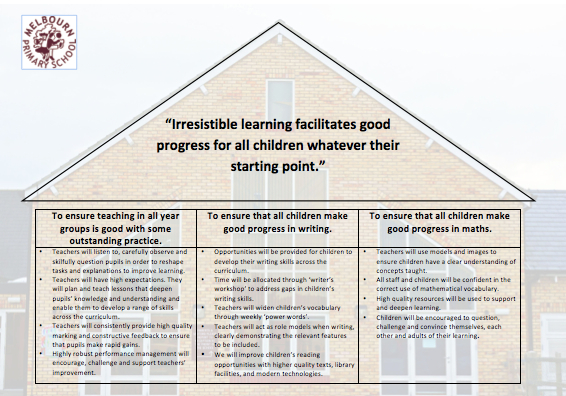
Dr. Charlotte Carter-Wall
Dr. Charlotte Carter-Wall is the founder of Transform Education Consultancy Ltd, a school improvement company, focused on raising standards in schools in Great Britain.
This Message House Case Study interview has been edited and condensed.
 Our work focuses on school improvement. Pupils have an entitlement to an outstanding education and staff to the professional satisfaction of consistently doing an excellent job – making a difference to the outcomes of all regardless of starting point.
Our work focuses on school improvement. Pupils have an entitlement to an outstanding education and staff to the professional satisfaction of consistently doing an excellent job – making a difference to the outcomes of all regardless of starting point.
We have made use of the Message House tool in many different school contexts to support school leaders to strip back what they intend to do and achieve and think clearly about different audiences and purposes.
To give you some context: In some schools leadership struggles to articulate clearly how and why they intend to drive whole school improvement in a particular direction. There is an implicit lack of urgency and staff may be confused or able to ignore what is planned.
All schools write school improvement plans on an annual basis. These are often lengthy documents and difficult to navigate. Often a single document is written for multiple audiences.
Teaching staff may choose to read selectively and often, they lose touch with the strategic vision the school must deliver as they become engrossed in everyday teaching in their classrooms. Schools are busy places. As a result, standards may improve only slowly, get stuck or fall behind. The quality of teaching across the school will become variable and new practices fail to be adopted as ‘what we do here’. This undermines transformational change and prevents schools from being judged good or outstanding when they are inspected. Another critical audience are school governors. They may be lost in the more technical language of school improvement and unable to hold the headteacher to account in terms of outcomes and value for money.
The Message House approach supports a structured and reflected approach to generating clear messages about what must happen and what robust outcomes will look like.
It helps school leaders:
- Think very clearly about the audience of the message
- Identify the overarching improvement agenda – what they intend to do achieve
- Pick out no more than three critical areas for improvement which are fit for purpose
- Discriminate between specific intended outcomes and the ‘noise’
- Hold the whole school to account for what must happen – the ‘non-negotiables’
- Create a structure which can be returned to on a regular bias as the touchstone of improvement
Beyond articulating what must be done, schools have been encouraged to think of creative ways to depict the message – often the whole staff does this collectively. This results in the message house becoming a personalised and shared metaphor of what ‘we’ as a school must do. The more visual nature increases memorability and practice.

At Melbourn Primary School a Message House was transposed on top of a photo of the real school building
At Melbourn Primary School in Cambridgeshire the Headteacher is very ambitious. She wants to communicate clearly with staff about what they must do to become a good school. There is a need to secure full commitment from all staff. Staff are used to working a certain way and this is no longer enough – change is not going away. We introduced the Headteacher to the Message House methodology. We followed the approach outlined above. It was a very challenging process because of the precision of language required and the willingness to avoid adding details that would distract from the key messages. Staff need to have a shared understanding of the changes that are required and a clear vision of what successful practice would involve. Different versions have been produced for other groups – parents and school governors. However the message is always the same – a corporate understanding.
As a result, engagement and the understanding of staff have improved significantly and the school as a whole knows what must be done. Schools who have made use of the approach over the last year have already been judged as good or outstanding. School inspectors commend the school on clarity of planning and impact.
[stextbox id=”interviews”]Want to share your experience as well? Please let us know. (We’ll interview you by phone and do all the writing).[/stextbox]
